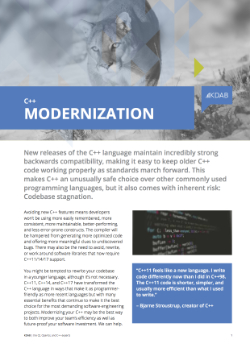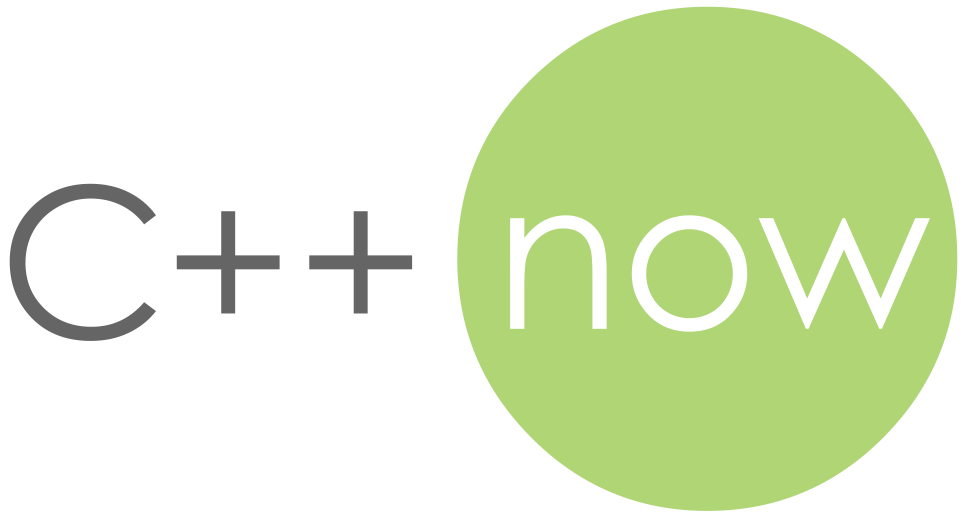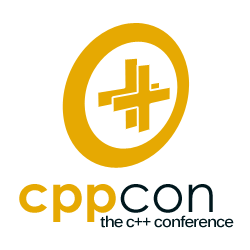C++ Modernization Brochure--Don Tait
 Interested?
Interested?
C++ Modernization Brochure
by Don Tait
From the article:
New releases of the C++ language maintain incredibly strong backwards compatibility, making it easy to keep older C++ code working properly as standards march forward. C++11, C++14, and C++17 have transformed the C++ language in ways that make it as programmer-friendly as more recent languages but with many essential benefits that continue to make it the best choice for the most demanding software-engineering projects.
Modernizing your C++ may be the best way to both improve your team’s efficiency as well as future-proof your software investment. KDAB has broad, deep experience delivering cost-effective, long-term, pragmatic solutions that modernize existing C++ codebases without losing functionality during the process.
Download our brochure to find out more...

 Be careful.
Be careful.

 As part of the Conan ecosystem JFrog is extending it's long living Artifactory
As part of the Conan ecosystem JFrog is extending it's long living Artifactory